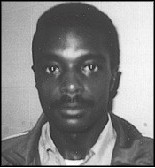 Stanley Howard During the evening of May 20, 1984, 41-year-old Oliver Ridgell and Tecora Mullen sat in a parked car in the Southside of Chicago. Mullen, a married woman, was having an affair with Ridgell. By her account, a man approached the vehicle and asked for a cigarette. When Ridgell denied him, the perpetrator pulled out a gun and tried to rob them, but ended up fatally wounding Ridgell. Mullen was able to give a description of the man, but she was under the influence of alcohol and her visibility was limited by darkness.
On November 1, 1984, Chicago Police arrested 21-year-old Stanley Howard on charges unrelated to the murder, but the officers noted Howard’s similarity to Mullen’s description. After an interrogation, Area 2 detectives James Lotito, Ronald Boffo, Robert Dwyer, and Sergeant John Byrne (working under Commander Jon Burge), witnessed Howard signing a confession to the attempted armed robbery of Mullen and Ridgell and the murder of Ridgell. Howard maintained that he was tortured by suffocation with a plastic bag used to cover typewriters and other physical abuse until he confessed to the crime. Wayne Kinzie, a paramedic, noted bruises and cuts on Howard’s left leg and chest.
Howard was tried before a jury in 1987. The presiding judge was Judge John J. Mannion, a former police officer who had worked in the same area as the officers who interrogated Howard. The defense moved to exclude the purported confession from evidence, but Mannion found the confession voluntary and denied the motion. Mullen – whose husband had been the prime suspect in the murder before she identified Howard in a police lineup – testified at trial that Howard was the killer. Howard was convicted and sentenced to death.
On direct appeal, the Illinois Supreme Court affirmed Howard’s conviction and death sentence on December 19, 1991, stating, “The evidence of the defendant’s guilt was overwhelming.”
After reviewing the facts, however, Governor George H. Ryan found the evidence underwhelming and, on January 10, 2003, granted pardons based on actual innocence to Howard and three other wrongfully convicted death row inmates-- Leroy Orange, Aaron Patterson and Madison Hobley. Referring to false confessions under police brutality, and the unreliability of the eyewitness testimony, the Governor stated, “I have reviewed these cases and I believe a manifest injustice has occurred. I have reviewed these cases and I believe these men are innocent.”
The Governor’s pardon authorized expungement of Howard’s record of the crimes committed on May 20, 1984, and his record was finally expunged on March 30, 2007. Howard remains convicted for various unrelated crimes, for which he faces imprisonment until 2023.
In 2007, the City of Chicago agreed to pay Howard and three other former death row inmates $20 million to settle claims of torture by police that led to their wrongful convictions. Howard’s share of the settlement was $1.8 million. Howard also received $161,000 under the state compensation statute.
— Rob Warden
|